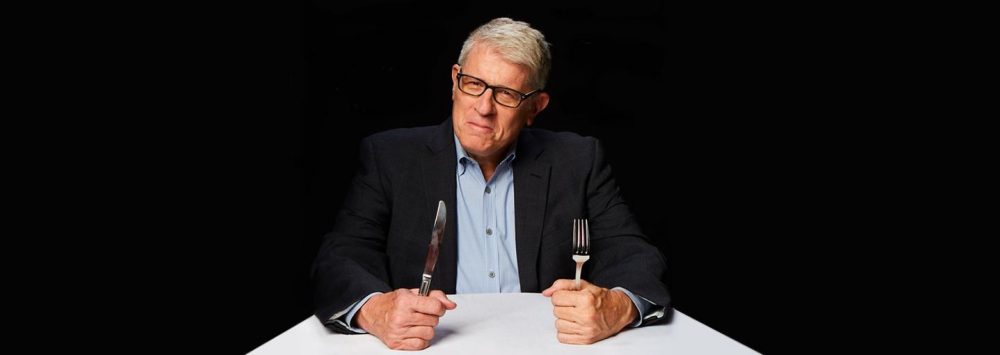When New York-based food writer and Serious Eats founder Ed Levine was a kid, his communist parents warned him to stay away from “the man.” (So adamant were they that their advice extended to which ice cream truck to frequent. The Good Humor truck, they warned, was too corporate.) On Milk Street Radio, Levine, who recently came out with "Serious Eater: A Food Lover's Perilous Quest for Pizza and Redemption," discusses his roots and wrestling with his anti-establishment foundation as he built his food media brand—the first of its kind.
Check out the excerpts below for a taste of the conversation between Christopher Kimball and Levine, including a behind-the-scenes look at the turmoil and sacrifices required to make it through the “Serious Eats gauntlet.” Then listen to the full interview here on Milk Street Radio.
Christopher Kimball: One of my favorite things is you said there was an ice cream place [when you were growing up] where I guess and you could buy ice cream on credit?
Ed Levine: My parents would say, “Now don't get ice cream from the Good Humor truck,” because the Good Humor truck was the man. That was corporate. Smitty, the independent ice cream truck, would do two things that the Good Humor guys couldn't or wouldn't do. He would split a popsicle and sell the half, and he would give you credit because he knew you were good for it.
CPK: I've never heard someone refer to the Good Humor man as "the man."
EL: He never had a chance with the Levine boys.
CPK: You quote E.B. White: “No one should come to New York unless he's willing to be lucky.” What a great quote. I guess that kind of sums up your career with Serious Eats, right?
EL: One of the dedications in the book is to the Serious Eats community, who taught me that everything and anything is possible with the aid of hard work, a good idea and a little luck. New York can seem like a forbidding, big place. It’s a hard place to find your community. But it's also a place that has a community for every human being on this earth, whether you can find it or not. That's where the luck comes in, and it's what allowed me to launch Serious Eats.
CPK: What is it like going through all that stress? You say in the book it took its toll.
EL:When you fall in love, you don't ask your partner what their tolerance for risk is. I didn't know that when I started Serious Eats I was going to end up borrowing well over half a million dollars that my wife and I had to guarantee personally. But there's no way to get a loan without personally ensuring it. They needed some collateral and Serious Eats being called the future of food media wasn't going to do it. I put my wife through hell. It was survival. Looking back on it, I think it's nothing short of a miracle that we're still married and that we made it through the Serious Eats gauntlet.
CPK: You did say once you sold Serious Eats, “Now that the company was sold, I was seen as 'the man.' The Serious Eaters felt like I'd put her whole family up for adoption. The problem was I felt that way too.”
EL: I was really invested in not being the man and building this tribe of likeminded people and giving them a place that would allow work to be a calling. But then all of a sudden some people who actually knew how to run businesses owned the business. I think everyone who’s now at Serious Eats is very happy with the people who bought the company; they let Serious Eats still be Serious Eats. But it doesn't mean that it's not a different feeling. I didn't expect to feel like the man, and it was a really uncomfortable feeling for both me and them.
This interview has been edited for clarity.
Join the conversation on Facebook, Twitter, Instagram and Pinterest.
Stay up to date on free recipes, new radio episodes, classes, events and more with our newsletter. Sign up here.
The author and founder of Serious Eats talks about launching his food media empire with Milk Street Radio



